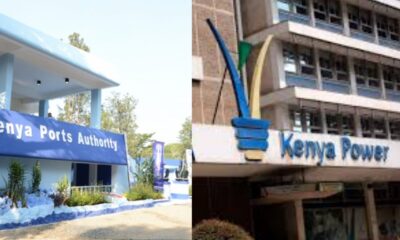Lock up the babies, politicians are coming” was a slogan at political rallies in the UK some years ago. Every British politician just needed to find a baby in a rally to hold and cuddle for a few seconds to show how empathetic a leader they were.
It was a ploy to give politicians a human face. As soon as elections were over, they would turn their backs on voters, never to return until the next cycle of elections.
Looking at the number of Kenyan politicians queuing up to distribute famine relief food is looking at insensitivity, hypocrisy and selfishness all rolled into one.
Where were they before, only to sprout and embrace the dying? They are rolling over themselves to gain undeserved capital out of a desperate and dire situation. They think it is a kind gesture but it is purely sadistic.
To make matters worse, the head of National Drought Management Authority (NDMA) comes out on the BBC with the most banal of responses to the drought.
He is quoted as saying that the people of Turkana are used to hunger anyway. Meaning, we just let hunger roll on because it is affecting the Turkana?
I am sorry, but where on earth does the government find such people to run places they are never fit to. For that is exactly my view.
He ought to have known better that hunger is a perennial problem in parts of the country and plan early to mitigate it — but not sit on the drought information because some groups are more resilient to hunger than others!
His sentiments bring me to the concern that I have always had: That the rest of the country perceives pastoralists, or nomads, as second-class citizens not worthy of a look in and only suitable to have crumbs thrown at them from whatever is left of the national cake. And the perception feeds into the policymaking forums.
Policymakers from other parts of the country seem to have little understanding, or care, for pastoralists or nomadic communities to consider fully their plight in development goals. And the wrong decisions end up undermining the rights of these vulnerable minorities.
The solution to famine will not be found in piecemeal plans and through expensive PR firms hired to spin figures of the dead and dying. It is embedded in long-term projects to bring prosperity to communities perennially ravaged by drought.
We cannot force people to change their way of life but can meet them halfway to improve their livelihoods through fair distribution of wealth. Preparing early with water, pasture and food supplies to mitigate suffering that we witness year in, year out is a good start but that is only a short-term measure.
In the recent past, we have witnessed huge projects start in Turkana with exploration of oil and the Lapsset project cutting through the counties of Isiolo and Marsabit.
Compensation of land to the pastoralists and nomadic communities has not made it to the news bulletins. Has one ever been initiated? If not, why? If these communities were treated as equal to the sedentary communities who were compensated for their land from the SGR projects, the funds would have gone a long way to alleviate hardship in the remote and harsh areas.
I understand most of the lands used by nomads and pastoralists are communally owned. However, if there is any justice in the world, they, too, ought to have been considered for compensation.
Like it or not, their lives have been disrupted by projects that they had little input in.
If anything, their grazing lands have shrunk and are at risk of shrinking further with more projects earmarked for the area. Which means these communities will be pushed further into poverty without adequate land compensation.
The then-Environment minister, Prof Judi Wakhungu, told a Unesco event in 2013 that a “huge water source” had been discovered in Turkana. This she confirmed in a tweet.
It is estimated that that discovery was enough to make Kenya water sufficient for 70 years! However, nothing of that water has been heard of since. This is an incredible discovery that would have partly addressed the current drought issue six years later had we begun to utilise it.
The oil and water found in Turkana should transform lives beyond recognition but alas! There is every likelihood that the benefits will be felt in pockets elsewhere.
The oil-rich Middle Eastern countries have similar climate patterns as northern Kenya but rarely do we hear of famine there. What is it they do differently from us — apart from corruption, of course?
We must stop to view the arid and semi-arid lands through the lenses of tribe, elitism and class and consider the potential lying in the dry sands for the benefit of the locals and the country. We struck oil and found water in Turkana but much more could lie where that came from.
Of all the things, death is not one to spin. It is time for mature, progressive and transparent politics that will bring meaningful change to the lives of every Kenyan.

 General News1 week ago
General News1 week ago
 Politics1 week ago
Politics1 week ago
 Business News6 days ago
Business News6 days ago
 General News6 days ago
General News6 days ago
 Business News2 hours ago
Business News2 hours ago




